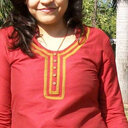Resuscitation in hypovolemia and shock: a prospective study of hydroxyethyl starch and albumin.
Keywords
Abstract
In a prospective study comprising 50 patients, we evaluated the hemodynamic, pulmonary, renal and coagulation changes after resuscitation with 2 colloidal fluids, 6% hydroxyethyl starch (HES) and 5% albumin (ALB). Twenty-five patients studied in each group were well matched for age, clinical presentation, presence of shock and type of surgical procedures. A standard fluid challenge with 500 ml of either solution significantly (p less than 0.01) increased pulmonary artery wedge pressure (WP), mean arterial pressure (MAP) and left ventricular stroke work index (LVSWI) and decreased systemic vascular resistance index (SVRI). Increases in LVSWI of 43% to 68% over baseline in HES patients compared favorably to 15-22% increases in ALB patients. The cardiopulmonary variables at 12 and 24 h were comparable in both groups. Improvement in cardiac function was also reflected by better tissue perfusion as judged by reduction in arterial lactate from 2.9 to 1.5 mM/L (ALB) and 2.6 to 1.4 mM/L (HES). Increased O2 delivery and reduced O2 extraction without significant deterioration of PaO2 or alveolar-arterial O2 gradient were observed with stabilization of circulation. Clinical bleeding due to colloid resuscitation was not documented and renal function was not affected significantly by either fluid. It seems that HES may offer a cost-effective alternative to ALB for patients requiring colloid resuscitation.


